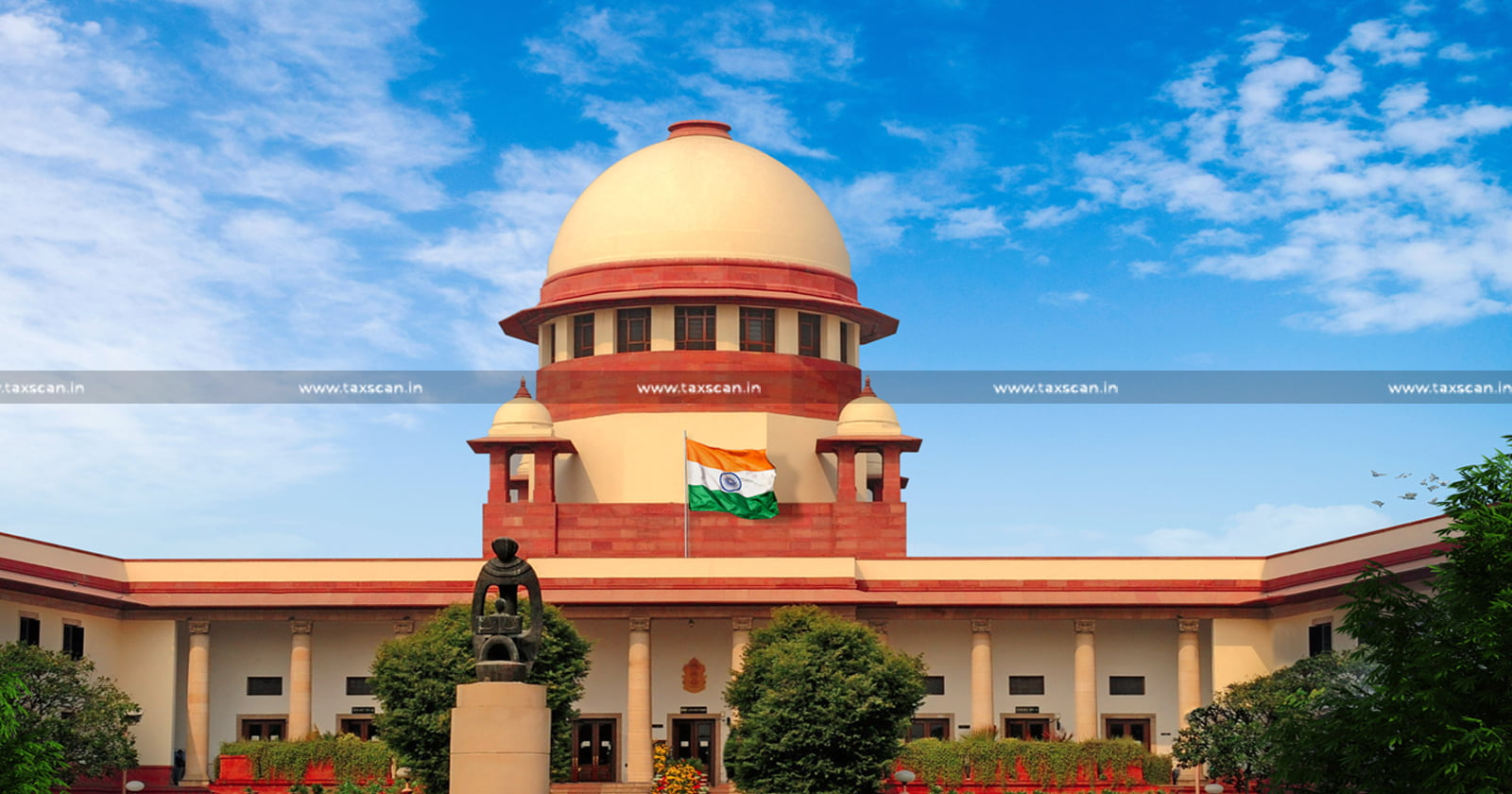Supreme Court issues Notice seeking clarification on availability of Central Excise Duty Exemption to Importers wrt CVD/ACD

Supreme Court issues Notice – clarification on availability – Central Excise Duty Exemption to Importers wrt CVD – ACD – TAXSCAN
Supreme Court issues Notice – clarification on availability – Central Excise Duty Exemption to Importers wrt CVD – ACD – TAXSCAN
The Supreme Court, in consideration of a batch of appeals under Section 130E of the Customs Act, issued notice to the respondents-Commissioners of Customs, seeking clarification with regard to the extent of exemption available to importers as per Central Excise Duty Exemption notifications for the payment of Countervailing Duty(CVD)/Additional Customs Duty(ACD).
An Additional Customs or Special Countervailing Duty is imposed on imported goods to equalize imports with local and domestic taxes. This brings imports in India on an equal level with the goods manufactured and produced within the country.
The appeal, Sedna Impex India Pvt. Ltd. Versus Commissioner of Customs, ICD Tughlakabad District and other tagged matters, will be heard by the Apex Court Bench of Justices B V Nagarathna and Ujjay Bhuyan and Advocates Bharat Bhushan, Dinesh Kumar Tiwary, Rakesh Ranjan, Chandan Kumar, Nidhi Gupta, Jaya Kumari, Anita Pandey, Shailendra Kumar Tiwari, Bhagwat Dayal, Satyam Pandey, Ajay Kumar Jain, Neelam Chand, Sarbendra Kumar, Rakesh Ranjan and Santosh Kumar Tripathi, Advocate On Record will contest the matter. The revenue is expected to respond to the issued notice soon.
In the case of Thermax Private Limited vs. Commissioner (1993), the central question revolved around extension of the Central Excise Exemption benefit meant for imported refrigerator parts, provided they were used in the manufacturing of refrigerators following Chapter X procedures. However, this benefit was denied for imported articles based on the rationale that the Chapter X procedure could not be followed by importers, as they weren't manufacturers.
The Supreme Court, in its judgment, established that the imported goods were to be deemed as manufactured in India and the importer should be regarded as a manufacturer. Consequently, the imported articles were deemed eligible for the concessional rate. This ratio was confirmed in Hyderabad Industries Ltd. vs. Union of India (1995), by the Constitutional Bench of the Apex Court.
Through a bunch of Central Excise Exemption Notifications, the exemption was granted subject to the condition that the manufacturer has not availed the facility of CENVAT Credit. The revenue was denying benefit of such Notifications to the importers on the ground that no such CENVAT Credit is admissible and hence fulfilling the condition to avail benefit stays out of question.
Inclining towards not granting the excise duty exemption to importers, condition that the goods in question are manufactured from the inputs on which appropriate Central Excise Duty is paid and CENVAT Credit is not availed.
Further complicating the matter, the condition for not availment of CENVAT Credit was substituted with the condition that the goods in question are manufactured from the inputs on which appropriate Central Excise Duty is paid and CENVAT Credit is not availed, causing the indigenously manufactured goods to be disentitled from the exemption if they are manufactured using raw materials/inputs which are exempt from payment of duty or are nil-rated.
Subsequently, Circular No. 1005/12/2015-CX was also issued by the revenue wherein it was clarified the above referred Notifications dated 17.07.2015 and 21.07.2015 are issued only to save domestic industry from adverse implications of the judgment of the Supreme Court’s Constitutional Bench in SRF Ltd. vs. Commissioner which stated that, “it is impossible to imagine a case where in respect of raw naphtha used in HDPE in the foreign country, Central Excise Duty leviable under the Indian Law can be levied or paid”, and that the locally manufactured goods would continue to be exempt even after the aforesaid amendments effected on 17.07.2015 and 21.07.2015.
As per the Appellants, even after the aforesaid amendments, the importers are still eligible for availing benefit of Notification and the dispute before the Supreme Court raises the issue of availability of the benefits of said Exemption Notifications, after the above mentioned amendments.
Support our journalism by subscribing to Taxscan premium. Follow us on Telegram for quick updates


